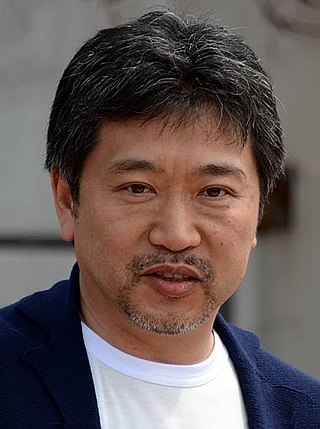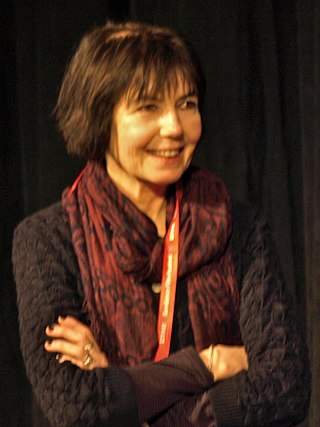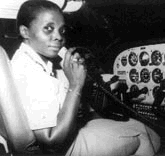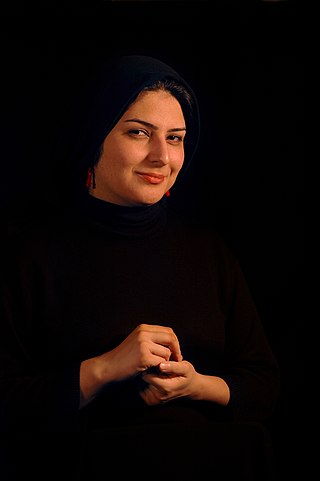
Hirokazu Kore-eda is a Japanese film director, producer, screenwriter, and editor. He began his career in television and has since directed more than a dozen feature films, including Nobody Knows (2004), Still Walking (2008), and After the Storm (2016). He won the Jury Prize at the 2013 Cannes Film Festival for Like Father, Like Son, and won the Palme d'Or at the 2018 Cannes Film Festival for Shoplifters.

The 58th Cannes Film Festival took place from 11 May and ran until 22 May 2005. Serbian filmmaker Emir Kusturica served as jury president for the main competition. Cécile de France hosted the opening and closing ceremonies.

Im Sang-soo is a South Korean film director and screenwriter. He has twice been invited to compete for the Palme d'Or at the Cannes Film Festival: first for The Housemaid in 2010, and then The Taste of Money in 2012.
Women's cinema primarily describes cinematic works directed by women filmmakers. The works themselves do not have to be stories specifically about women, and the target audience can be varied.

Marc Levin is an American independent film producer and director. He is best known for his Brick City TV series, which won the 2010 Peabody award and was nominated for an Emmy for Exceptional Merit in Nonfiction Filmmaking and his dramatic feature film, Slam, which won the Grand Jury Prize at the Sundance Film Festival and the Caméra d'Or at Cannes in 1998. He also has received three Emmy Awards and the 1997 DuPont-Columbia Award.

Kim Longinotto is a British documentary film maker, well known for making films that highlight the plight of female victims of oppression or discrimination. Longinotto has made more than 20 films, usually featuring inspiring women and girls at their core. Her subjects have included female genital mutilation in Kenya, women standing up to rapists in India, and the story of Salma, an Indian Muslim woman who smuggled poetry out to the world while locked up by her family for decades.

Siân Heder is an American filmmaker who is best known for writing and directing the films Tallulah and CODA. CODA earned Heder an Academy Award for Best Adapted Screenplay. The film also won the Academy Award for Best Picture and the Academy Award for Best Supporting Actor for Troy Kotsur.

Thérèse Sita-Bella, born Thérèse Bella Mbida, was a Cameroonian film director who became the first woman filmmaker of Africa and Cameroon.

The cinema of Lebanon, according to film critic and historian Roy Armes, is the only other cinema in the Arabic-speaking region, beside Egypt's, that could amount to a national cinema. Cinema in Lebanon has been in existence since the 1920s, and the country has produced more than 500 films.

Abby Ginzberg is an independent documentary film director and producer and founder of Ginzberg Productions. For the past 30 years, Ginzberg has been creating films that tackle discrimination and the legal profession.

Mania Akbari is an Iranian filmmaker, artist, writer, and curator whose works explore women's rights, marriage, sexual identity, disease and body image. Her style, in contrast to the long tradition of melodrama in Iranian cinema, is rooted in the visual arts and autobiography. Because of the taboo themes frankly discussed in her films and her opposition to censorship, she is considered one of the most controversial filmmakers in Iran.

Ursula Meier is a French-Swiss film director and screenwriter.

Women Make Movies is a non-profit feminist media arts organization based in New York City. Founded by Ariel Dougherty and Sheila Paige with Dolores Bargowski, WMM was first a feminist production collective that emerged from city-wide Women's Liberation meetings in September 1969. They produced four films by 1973. Dougherty and Paige incorporated the organization in March 1972 as a community based workshop to teach film to everyday women. A distribution service was also begun as an earned income program. In the mid-1970s a membership was created that screened and distributed members' work. In the early 1980s focus shifted to concentrate on distribution of independent films by and about women. WMM also provides production assistance to women filmmakers.

Shinjuku Boys is a 1995 film by Kim Longinotto and Jano Williams. It explores the lives of three non-binary or transgender men who work at the New Marilyn Club in Tokyo, Japan. The term they use for themselves is onabe, and the three protagonists discuss their romantic relationships, their relationships with their parents, their gender presentations, how they understand their own genders, and their different outlooks on life.
Amina Maher is an Iranian-born queer feminist artist, activist, actress, and filmmaker living in Berlin, Germany. Her works are focused on the breakdown of family structure, shame culture, and patriarchal myths. Her creative works criticize traditions, media, culture, and norms. Her cinematic activity began as the main actor in Abbas Kiarostami and Mania Akbari´s Ten (2002) nominated for the Palme d'Or at Cannes Film Festival. Since then, she acted, edited and has been in films that have been part of festivals such as Cannes Film Festival, British Film Institute, San Sebastián International Film Festival and International Film Festival Rotterdam.

Rokhsareh Ghaemmaghami is a Sundance Award-winning Iranian documentary filmmaker who was born in Tehran. She has directed one full-length documentary, four short documentaries and one animated documentary.
Florence Ayisi was born in Kumba in Cameroon on 22 July 1962). She is an academic and filmmaker. Her film Sisters in Law won more than 27 awards and was short-listed for an Academy Award nomination in 2006. She won the UK Film Council Breakthrough Brits Award for Film Talent in 2008. Since 2000 she has taught film at the University of South Wales.
Feras Fayyad is a Syrian film director, producer, and writer. Fayyad best known for his 2017 documentary Last Men in Aleppo and his 2019 documentary The Cave, both films earned him critical acclaim and numerous awards and nominations including two Academy Award for Best Documentary Feature, making him the first Syrian director to be nominated for an Oscar. Fayyad also won an Emmy award for Best Current Affairs Documentary, was nominated for a creative Emmy for best writing and directing, and has received two George Foster Peabody awards and a nomination for Outstanding Directorial Achievement from the Directors Guild of America for his movie The Cave.

Osvalde Lewat is a Cameroonian filmmaker and photographer best known for her sociopolitical documentaries.

The Voice of a Woman (VOW) is an organization founded by Maureen A. Bryan in 2009, as a platform for the works of women filmmakers, artists and thought leaders internationally. The Voice of a Woman Festival, Awards, Talks and Masterclasses are presented each year in London, New York and Cannes.

















